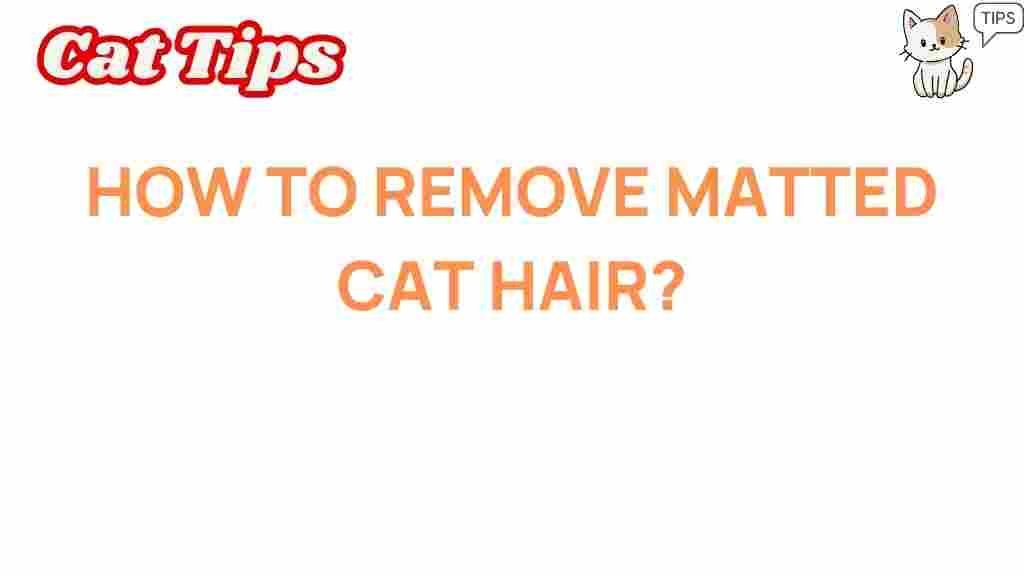Cat Grooming: Mastering the Art of Cat Grooming
Cat grooming is an essential aspect of pet care that not only keeps your furry friend looking their best but also promotes their overall health and well-being. One of the most challenging tasks in cat grooming is dealing with matted hair. Matted fur can lead to discomfort, skin issues, and even infections if left untreated. In this comprehensive guide, we will walk you through the process of removing matted hair while ensuring a stress-free experience for both you and your cat.
Understanding Matted Hair
Matted hair occurs when loose fur becomes tangled and intertwined with other hairs, forming dense clumps. This can happen for several reasons:
- Long-haired breeds are more prone to mats due to their fur’s length and texture.
- Lack of regular grooming can lead to the accumulation of dirt, dead hair, and debris.
- Health issues, such as obesity or arthritis, can prevent cats from grooming themselves effectively.
- Environmental factors, such as humidity and static electricity, can exacerbate matting.
Recognizing matted hair early can help you avoid more severe issues later on. Regular cat grooming is vital, so be proactive in checking your cat’s coat.
Preparing for Cat Grooming
Before you dive into the grooming process, ensure you have the right tools and a comfortable environment:
- Tools:
- Wide-toothed comb
- Dematting tool
- Cat-friendly scissors
- Slicker brush
- Cat treats for positive reinforcement
- Environment:
- Choose a quiet, well-lit area.
- Have your cat’s favorite blanket or bed nearby for comfort.
- Keep all tools within easy reach.
Step-by-Step Process to Remove Matted Hair
Follow these steps to effectively remove matted hair from your cat while minimizing stress:
1. Calm Your Cat
Before starting the grooming session, ensure your cat is calm and relaxed. You can do this by:
- Petting your cat gently.
- Speaking softly to reassure them.
- Offering treats to create a positive association with grooming.
2. Assess the Mats
Take a close look at the matted areas. Determine the size and severity of the mats to decide on the best approach:
- Small, loose mats can often be brushed out.
- Larger, tighter mats may require cutting or dematting tools.
3. Use a Wide-Toothed Comb
Start by using a wide-toothed comb to gently work through the mats. Here’s how:
- Hold your cat securely, using your other hand to steady the area being groomed.
- Begin at the edge of the mat and work your way in.
- Be patient and avoid pulling on the hair, as this can cause pain and distress.
4. Use a Dematting Tool
If the mats are stubborn, a dematting tool can be beneficial:
- Position the tool at the edge of the mat.
- Gently slide the blade through the mat without pulling on the hair.
- Work in small sections until the mat is loosened.
5. Trim with Scissors (if necessary)
For very tight mats that won’t budge, you may need to trim them away:
- Use blunt-tipped scissors to avoid injuring your cat.
- Carefully cut the mat away from the skin, ensuring you don’t cut any fur too close.
- It’s best to cut mats out in small sections to reduce the risk of injury.
6. Brush the Remaining Fur
Once the mats are removed, brush your cat’s fur with a slicker brush:
- Brush in the direction of hair growth to remove any loose hair.
- Pay attention to areas that are prone to matting, such as behind the ears and under the legs.
7. Reward Your Cat
After grooming, reward your cat with treats or playtime to create a positive experience. This helps them associate grooming with good feelings.
Troubleshooting Common Issues
Sometimes, despite your best efforts, cat grooming can present challenges. Here are some common issues and how to address them:
1. Cat is Aggressive or Fearful
If your cat becomes aggressive or fearful during grooming:
- Take breaks and allow your cat to calm down.
- Try grooming for shorter periods, gradually increasing the duration.
- Consider consulting a professional groomer or veterinarian if aggression persists.
2. Mats Keep Returning
If mats frequently reoccur, consider the following:
- Increase the frequency of grooming sessions.
- Evaluate your cat’s diet and health; ensure they are receiving proper nutrition.
- Consult your veterinarian for advice on managing your cat’s grooming needs.
3. Difficulty in Finding Mats
If you’re having trouble locating mats, try:
- Grooming in a well-lit area.
- Running your fingers through your cat’s fur to feel for any lumps or tangles.
- Using a mild detangling spray specifically designed for cats.
Conclusion
Mastering the art of cat grooming, especially when it comes to removing matted hair, is crucial for your cat’s comfort and health. Regular grooming not only reduces the risk of mats but fosters a stronger bond between you and your cat. Remember to be patient, use the right tools, and create a positive environment for your furry friend. If you find yourself overwhelmed, don’t hesitate to seek help from professionals. With practice and care, you’ll become a cat grooming expert in no time!
For more tips on pet care, check out this resource.
Additionally, if you’re interested in exploring grooming tools, you can find a variety of options here.
This article is in the category Grooming and created by CatTips Team
